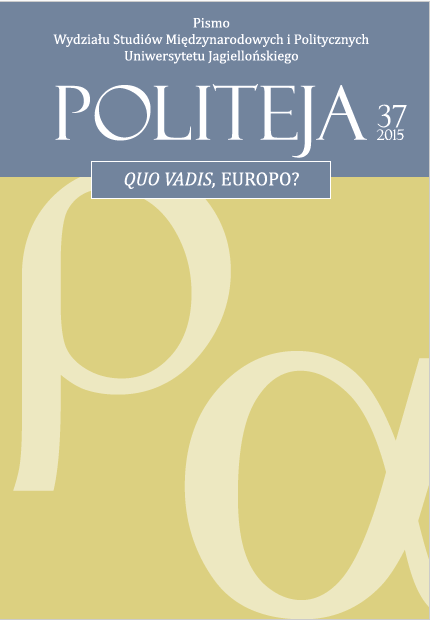Czarnogóra w procesie integracji z Unią Europejską. Szanse i wyzwania
Montenegro in the Process of Integration with European Union. Opportunities And Challenges
Author(s): Krzysztof KoźbiałSubject(s): Politics / Political Sciences
Published by: KSIĘGARNIA AKADEMICKA Sp. z o.o.
Keywords: Montenegro; Western Balkans; EU enlargment; accession negotiations
Summary/Abstract: 2006, after referendum, the Montenegrin Parliament declared the independence of Montenegro. One of the primary foreign policy objectives is integration into the European Union. 2007 Montenegro signed a Stabilisation und Association Agreement. On 17th December 2010 the EU granted Montenegro the official status of candidate country. The accession negotiations with Podgorica started on 29th June 2012. In December 2012 first chapter in negotiations was opened and provisionally closed. The EU provides financial assistance to Montenegro under the IPA (Instrument for Pre‑accession Assistance). Now has this country top position among the states striving for the EU membership. One of the phenomena of Montenegro’s political life is the fact that the power has been in the hands of the political party: Democratic Party of Socialists, and personally Milo Ðukanović. The biggest internal problems are: ethnic (only 45% Montenegrins), linguistic (almost 43% speaks Serbian, only 37% Montenegrin) and religious structure (Montenegrin Orthodox Church has not been recognized). The important problems in negotiations: corruption and organized crime in Montenegro and, probably, unilateral euro adoption in 2002.
Journal: Politeja - Pismo Wydziału Studiów Międzynarodowych i Politycznych Uniwersytetu Jagiellońskiego
- Issue Year: 12/2015
- Issue No: 37
- Page Range: 209-229
- Page Count: 21
- Language: Polish

